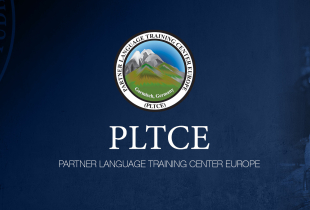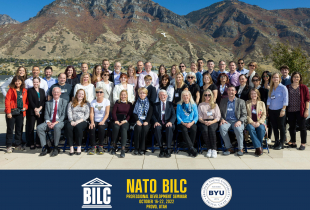
Language Course Strengthens Multinational Security Cooperation
The Partner Language Training Center Europe (PLTCE) began its latest iteration of the English Language Enhancement Course (ELEC) in Garmisch-Partenkirchen on Aug. 13, 2025.
ELEC is a five-week intensive course tailored to prepare participants for the upcoming Program on Applied Security Studies (PASS), a graduate-level program in international security studies set to begin fall 2025. This a hallmark course at the Marshall Center focuses on strategic competition and challenges for Europe with an eye toward strengthening deterrence and defense.
“As ELEC participants, you’re not just here to refine your English language skills, you’re here to strengthen your voice in multinational forums where ideas shape policy and cooperation,” said Deputy Director Tim McAteer during course opening remarks.
The instructors at PLTCE, who oversee several language programs, personalize the language enhancement course to each participant’s individual English language development. In this way, they help familiarize participants with terminology used in future security studies, strengthen presentation skills, and enable more effective dialogue.
Current ELEC participants not only enhance their language skills, but also develop greater confidence in contributing to PASS, an important multinational forum.
In 2016, PLTCE was designated a NATO Approved Education and Training Facility by the NATO Allied Command Transformation (ACT) Joint Force Trainer. PLTCE earned this recognition by upholding the rigorous standards of NATO ACT quality assurance and successfully completing the NATO institutional accreditation process.
During the 5-week course, participants develop their English language speaking, listening, and reading skills through high-level class discussions and participant-developed briefings, recordings of past lectures, current readings and news on security-related issues, and presentations by current Marshall Center course directors.
Through the rigorous curriculum, participants get a chance to improve their fluency as well as learn and practice the highly technical, field-specific jargon and vocabulary related to security and deterrence issues.

